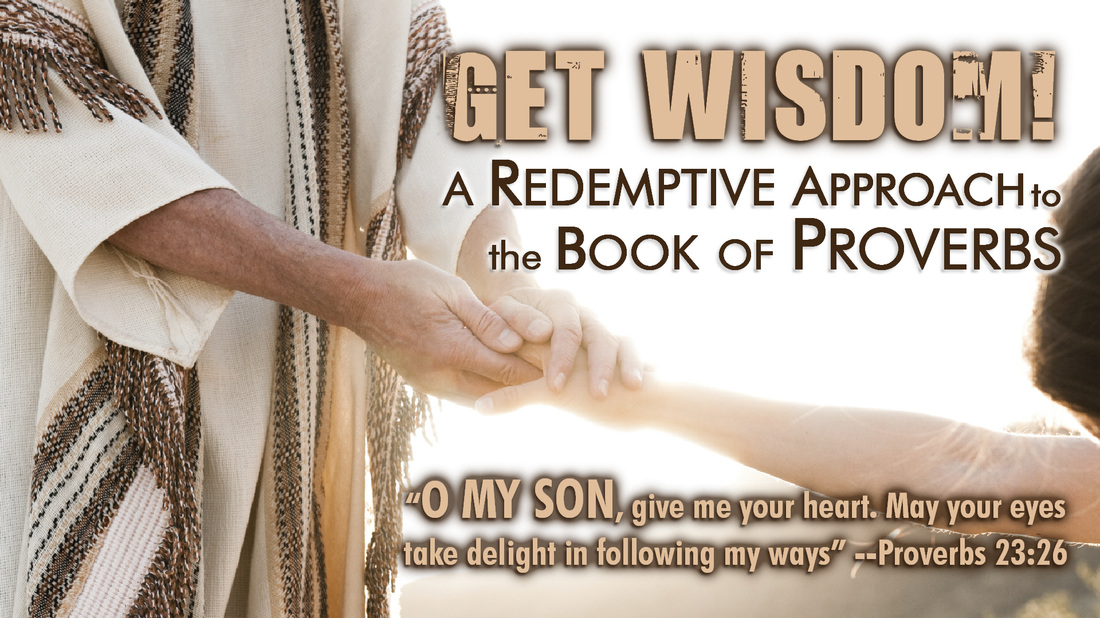|
In Zechariah 3:1-3, Satan, the accuser, is standing beside Joshua, the very human high priest who is sinful and clothed in filthy robes. He is ready to accuse Joshua for his sins, when the Lord intervenes and says,
“The Lord rebuke you, Satan! The Lord, who has chosen Jerusalem, rebuke you! Is not this man a burning stick SNATCHED from the FIRE?” God planned to save and redeem Joshua--ultimately by sending Jesus (Jesus is the Greek version of the name Joshua) to be a perfect high priest and king. Satan was only there to hurl insults, shame, and accusations. He saw no value in Joshua. But God did. He deserved death, but God saved him by his grace, as a "burning stick snatched from the fire." There is a great sermon illustration for this passage (or any other passage on God's grace and redemption) found in this story - JOHN WESLEY - A BRAND PLUCKED FROM THE FIRE! When he was five, John Wesley's house caught on fire. It was not until the last moment that he was saved from the fire. And John Wesley believed that, like Joshua the high priest, God had saved him for a purpose. He would go on to overcome fear and failure to preach thousands of sermons across the US, helping to usher in the First Great Awakening through his preaching, teaching, and church planting. Who does this have application for? All who have been beaten down by Satan and the world and made to feel worthless--and all who have no hope for the future changing. It could apply to:
If God cared enough to save Joshua and John Wesley, does he not care enough to save when we need his salvation? Songs of Songs, or Song of Solomon, is a book that many people have not quite know what to do with. It is mainly filled with poetry between lovers. exception that it is in the context of marriage, or at least in parts, a bride and groom about to be married or on their wedding night.
Sex in the Bible, of course, is reserved for marriage. And in that sense, Song of Songs presents a different picture of sex. While sex is portrayed everywhere in culture, rarely is it portrayed in a husband-wife relationship. Hot, passionate sex between husband and wife--it does not exist, culture says. Only affairs are portrayed in this way. So, in that sense, by showing that sex between a husband and wife is good and can be passionate, Song of Songs redeems sex. Many Christians get the idea that sex is bad. Any song on the radio that speaks of sex is automatically bad. Even Christian adults in a marriage relationship can think that those are bad songs. (Some Christians even grew up with the idea that dancing in one's own bedroom is bad as well.) Take for instance the following passage from Song of Songs 7:7-12. If you did not know that this were from the Bible, what would be your first reaction if you heard the words to this song on the radio? This is beautiful poetry, but it is pretty explicit. It shows that sex is good, enjoyment of one another's bodies--and heart and emotion and spirit--is good. The physical, sexual relationship in a marriage is good. By not presenting a good, biblical view of sex at age appropriate times, and only speaking of the negatives of sex, we leave people to be shaped by the culture or to have negative views of sex even within Christian marriage. Both views are not good. There is much sexual brokenness today. This is true outside of marriage. But it is true even within Christian marriage. Why? Because of sin and the fall. When God created Adam and Eve, it says that they were naked without shame. But when sin entered into the Garden, Adam and Eve realized that they were naked and felt shamed. Today, of course, there is still sin--sin that we commit, and sin that others commit against us. Those who have been emotionally or physically abused may find it difficult for them to be vulnerable or "naked" with their spouse. Sin damaged the earth physically, and age and decay and cancer entered into the world. These can interfere with a good sexual relationship. Spouses sin against one another with selfishness and biting or hurtful words and actions. Emotional and physical affairs cause much damage. But in Song of Songs, we see what God intends for sex to be like in a marriage. It is no coincidence that the height of the sexual expression is found in the middle of the book of Song of Songs--and that this lovemaking happens in the context of a "garden." Song of Songs 4:12-16 says this: He Says 12 You are a garden locked up, my sister, my bride; you are a spring enclosed, a sealed fountain. 13 Your plants are an orchard of pomegranates with choice fruits . . . 15 You are a garden fountain, a well of flowing water streaming down from Lebanon. She Says 16 . . . Let my beloved come into his garden and taste its choice fruits. Clearly, this is the sexual relationship that God intended for Adam and Eve to have for one another in the Garden of Eden, where they were made to become "one flesh." In this Song of Songs, God shows us the type of sexual relationship he wants for Christian husbands and wives--passionate, overflowing, wild, and loving--with nothing, no sin, between them to hinder the relationship. The more that couples put aside the sin of selfishness that is inside us all, the more that the sexual relationship will blossom. And Paul encourages Christian couples to continue to have sexual relations in 1 Corinthians 7:1-5. The tiredness of the world, sins committed against us, sins of spouses against one another, can all make sexual relations difficult. And yet, withholding sex, except by mutual consent, because their is sin and hurt, is not an option for Christian couples. Paul even says something totally radical here, that one's own body is not one's own. That is a radical kind of oneness that goes beyond just a metaphor. The wife does not have authority over her own body, but must yield it to her husband! Even more radical for that time--the husband does not have authority over his own body, but must yield it to his wife! That is radical stuff. It means that the offer should, in general, always be open unless there is agreement by both parties to abstain--and only then for a time. Of course, Christian love will temper this demand and take into consideration the spouse's state. But this is still radical. It is far different from the occasional offer when the time and circumstances are just right. It may require a change in lifestyle to make this possible in a marriage to allow time and energy for this relationship. It may require a change in attitude. It may require many things that may be hard, but it is still what God calls Christian couples to do. Again, sin and selfishness messes all of this up. That is why the more that spouses seek to be like Christ, the better the sex will be. (And Paul says that sex itself protects against sin and affairs.) Song of Songs gives us a glimpse and understanding of the type of sexual relations a Christian couple ought to strive for in their marriage. Marriage and sexual relations can be difficult. But it can also be incredible, with God's help and blessings and a Christ-centered marriage. What do you think of the image of sexual relations and marriage found in Song of Songs? What challenges do you see? What hope do you draw from this? As I state in a previous post on the book of Proverbs, Three Keys to Understanding Proverbs, on the surface, the book of Proverbs seems to be just a collection of wise, pithy sayings on, admittedly significant topics, but that could be viewed as good advice that could be found or offered anywhere--or least, a lot of different places.
But of course, even that surface reading (or, more, likely, a surface pulling out of just random proverbs) would paint a false picture, for the book of Proverbs is God saturated and based upon a God-centered worldview. This is true in particular for the first nine chapters of Proverbs, which is essential for understanding how to use and view chapters 10 through the end of the book. The book of Proverbs also is seemingly devoid of any kind of references to Christ and any direct prophecies of him. This charge is probably true. However, Jesus himself (Luke 24:27f) and the New Testament writers in the way that they used the Old Testament clearly saw that Jesus was the hermeneutical lens through which Scripture was to be viewed. And when we look at the book of Proverbs through our understanding of Christ and the fuller redemptive story, we can see that there are typological and theological links to Jesus ALL throughout Proverbs. Walking through some of the book of Proverbs, here are some of the Christ and redemption themes that can be applied to this book to give us a richer, fuller understanding of the godly wisdom. (Note: I am indebted to Old Testament professor Dr. Glenn Pemberton for helping me understand and appreciate the Wisdom literature (including Proverbs) and of the "First Testament" in its own right, to historical theology professor Dr. John Mark Hicks for some theological insights on Proverbs, numerous articles, and to especially to Johnathan Akins excellent book on "Preaching Christ from Proverbs.")
A Powerful Story of a Mother's Sacrifice - Joel Rosenburg's Wife in a WWII Concentration Camp5/8/2015 I am convinced more and more that the essence of preaching is the proclamation of the redemptive story--God reaching out to humanity out of his love, sending Christ to live and sacrificially die for us, and raising Jesus Christ from the dead. It is a story about God taking the blackest of life and bringing light into the world. It is about the restoration of hope through the cross. So for me, no topical preaching lesson will have more impact than if it is connected to this redemptive story. That includes lessons like Mother's Day sermons. The story below tells of a mother's love for her child, which causes her to sacrifice everything for him. ----------------------------------------------------------------------------------------------------------- Solomon Rosenberg, his wife, his two sons, and his mother and father were arrested and placed in a Nazi concentration camp during the Holocaust of WWII. It was a labor camp and the rules were simple: As long as you can do your work, you are permitted to live. When you become too weak to do your work, then you will be exterminated. Rosenberg watched his mother and father being marched off to their deaths when they became too weak to work. He knew that his youngest son, David, would be next because David had always been a frail child. Every evening when Rosenberg came back into the barracks after his hours of labor, he would search for the faces of his family. When he found them, they would huddle together, embrace one another, and thank God for another day of life. One day Rosenberg came back, but he didn't see those familiar faces. He finally discovered his oldest son, Joshua, in a corner, huddled, weeping, and praying. He said, "Josh, tell me it's not true." Joshua turned and said, "It is true, Poppa. Today David was not strong enough to do his work, so they came for him." "But where is your mother?" asked Mr. Rosenberg. "Oh Poppa," he exclaimed. "When they came for David, he was afraid and he was crying. Momma said, ‘There is nothing to be afraid of, David,' and then she took his hand and went with him." ----------------------------------------------------------------------------------------------------------- That, my friends, is powerful. That, my friends, is redemptive. That, my friends, illustrates the kind of love that Christ has for us--a love so strong that he gave himself up for us. I would propose that what we find so good in mothers is that sacrificial, selfless love. It touches us because it points to that incredible sacrifice of Christ and the great redemptive story. Mothers have played an incredible part in this redemptive story, from Eve to Sarah to Tamar to Ruth to Bathsheba to Mary. And they continue to play an incredible part in this story in their lives of daily sacrifice. Mothers, we honor you for who you are and for who you so powerfully remind us of--Jesus Christ! What stories in the Bible do you see that point to the redemptive roles of mothers? Note: I am indebted to Scotland missionary JR Sheets for a discussion that we had today on how to make Mother's Day sermons redemptive. He suggested and we discussed together some of the approaches listed below. Thanks, JR! Mother's Day sermons and the like can be challenging, I think. We want to address the topics that members and guests have on their minds on this day (there is nothing worse than having people show up on the Sunday before Christmas, for instance, and hearing a sermon on where Cain got his wife!). And the Bible does talk about mothers. However, other than Proverbs 31, it does not address really motherhood in an extended topical form, which is what many people are looking for on these days. So how should we approach this? I believe that the role of the preacher is in large part to tell the redemptive story/Story of Redemption in each sermon as much as possible. We are not there to preach mere moralism (though the redemptive story will lead to a higher moral standard), or just to highlight/give honor to different groups (though this can be a part of the redemptive story). We are not there to merely give out knowledge or textual insights (though this can happen, if it is helpful to the message). We are there (even on Mother's Day) to preach and proclaim the redemptive story of Christ throughout the ages. With this in mind, how can we make Mother's Day and other types of topical sermons "redemptive?" Well, the most obvious answer to me is to show how, for instance, mothers fit into God's redemptive plan. Here are some ideas/passages to consider:
To this I would simply add that many mothers feel guilt and feel inadequate in their role in the raising of children, juggled with being a wife or single parent, or working parent. They also may feel hurt or pain at their children having gone astray, and may even blame themselves. And if they cannot have children or have lost children, this is devastating. What are some passages on mothers that you see as being part of the Redemptive Story? How would you approach Mother's Day? |
Search this site for a topic or message illustration or click on the categories below!AuthorDr. James Nored (Doctor of Ministry, Fuller Theological Seminary) is a preacher, evangelist, church consultant, writer, and missional leader located in Fairfax, Virginia, a suburb of Washington, D.C. Categories
All
Recent Posts
Could Good Preaching/Storytelling Bring Happiness? The Power of Threes in Rhetoric If Your Sermon Does Not Contain These Two Things, It Will Fall Flat Why No One Watches Your Sermon Online--and 3 Ways How to Change This Archives
June 2016
|



